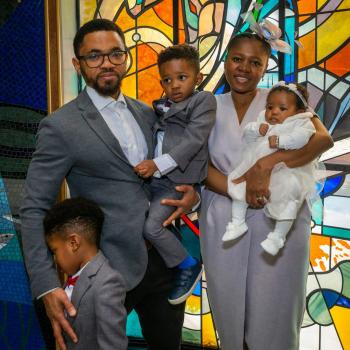When you’re grieving, you expect certain feelings while others come as a surprise. But there is hope for those who experience grief.

Grief can hit you unexpectedly. You can be taken aback by sudden feelings of heartache or linger in unexplainable sorrow. Grief looks different for each individual. But it has some common features.
More Than Just Mourning a Death
When you hear the word “grief,” you likely think of mourning a person’s death. But grief can take many forms beyond the experience of a loved one’s passing. For instance, you might grieve:
- The unwanted loss of a job due to downsizing, firing, or layoffs
- Retirement from a job you enjoyed
- The death of dreams and goals
- Moving away from a beloved home
- Romantic breakup
- The loss of a pet
- Friendships that fade over time or end suddenly
- The loss of an opportunity that didn’t work out for you
- Prolonged illness that limits your ability to do things you love
This is certainly not an exhaustive list. Grief is any mental suffering or emotional unrest due to loss, hardship, or calamity. What causes one person to grieve might not cause another distress. So don’t let anyone tell you that your sorrow is unmerited. Your feelings are your feelings—and they are valid.
Stages of Grief
Many are familiar with the Five Stages of Grief. When faced with grief-inducing situations, Elizabeth Kubler-Ross says that individuals often go through predictable experiences. These include:
- Denial
- Anger
- Bargaining
- Depression
- Acceptance
For example, a cancer patient may start with denial of the symptoms. They may refuse to get a checkup, convinced that the lump they’ve found is no big deal. Or, once they receive a diagnosis, they may downplay their fears to themselves or others. Denial is a defense mechanism that allows people to delay dealing with their emotions until they are ready.
The patient may feel anger directed at their doctor, their spouse, or the manufacturers of the product that caused their cancer. Sometimes this anger is warranted. Other times it is misplaced anger, directed at the closest target.
The patient may display bargaining behavior by pleading with God for more time or begging doctors for additional support. Or they might plead with insurance companies for needed authorizations. Ongoing or repetitive treatments can be one form of bargaining.
Depression often follows as denial, anger, and bargaining fail. This “woe is me” stage can be debilitating.
Finally, Kubler-Ross says there comes a stage of acceptance. The individual realizes that this is the new normal. They begin to come to terms with the expected outcome.
While other models of grief have been suggested, Kubler-Ross’s work has remained preeminent for decades. It is important to note that these stages are not exhaustive. Neither are they necessarily in order. Each individual’s grief is unique, and each will manifest in its own way.
Different Types of Grief
In her article, “16 Different Types of Grief People Experience,” Liz Kelly enumerates multiple kinds of grief, including:
- Normal grief, which I will call “reactive grief,” that comes after the loss or affliction.
- Anticipatory grief, which comes in expectation of future sorrow.
- Complicated grief, which gets stuck somewhere along the way, and does not move through the stages in a healthy manner.
- Chronic grief, which does not seem to go away.
- Delayed grief, which can happen if you are in a situation that does not allow you to grieve in the present moment. Later, when you are able to process your sorrow, the grief hits.
- Cumulative grief, when one sorrow heaps upon another.
Kelly’s article lists over a dozen different types of grief. She also discusses several physical, behavioral, emotional, and social reactions to grief. Her article is definitely worth the read.
How I Have Experienced Grief
As grief is personal, so is the story of each griever. For this reason, I will share two stories of grief symptoms I have experienced in my own life. By sharing, I hope you’ll find some commonality and know that the ways you experience grief are normal.
Cumulative and Delayed Grief
Years ago, when I was a pastor, my congregation and my family went through too many deaths at once. At the same time, my marriage was falling apart. Caring for everyone else, I compartmentalized my grief. One day after I returned from a hospital visit with a dying teenager and her mother, my wife at the time asked me, “How are you doing?” In that moment, I allowed myself to feel—and I fell to the floor in convulsive sobs and tears. This is an example of cumulative grief and delayed grief working together.
Symptoms of Grief
As I draft this article, I am going through anticipatory grief with my father in hospice care. I’ve found myself experiencing physical symptoms like actual tightness in my chest, lack of energy, and weight gain. I’ve also experienced behavioral symptoms such as forgetfulness at home and absent-mindedness at work. Emotionally, I’ve been more easily irritated, and frequently experience stabbing memories. Socially, I’ve been growing more introverted, withdrawing from friends. In addition, I’ve been numbing out in front of the TV more often.
Grieving Styles
Due to my history of ministry and my present role as a case manager, I know that I have two predominant grieving styles. First, I am an anticipatory griever. Knowing that I’ll be the one called on to hold it all together at the actual time of loss, I do a lot of my grieving in advance. Then, when the time of loss happens, I can maintain my bearing and get other people through the troubling time. Then, I am a delayed griever. I compartmentalize (read: bottle up) my feelings until the moment has passed. In essence, I save my breakdown for later.
Most folks have one or two major grieving styles. Knowing your grieving style can help you identify symptoms of grief when you experience them. It can also let you manage your emotions so you can assist yourself and others during times of loss and struggle. Knowing your grieving style can also allow you to recognize when your grief has become unhealthy, and to seek the help you need when you need it.
How Does Grief Feel to You?
People use a variety of comparisons to explain the way grief feels to them. Some describe grief as a flood that washes over them, threatening to drown them. Others say grief is like a knife, stabbing them with memories that seem to come from nowhere. For some, grief is a rollercoaster full of ups and downs, with hairpin turns that come when they least expect them. For others, grief comes as ghosts and visitations, haunting regrets bearing the chains of sorrow. However grief feels to you, the good news is that it isn’t meant to last forever.
Grief is a Wall
In his first letter to the church at Thessalonica, Paul wrote so they “may not grieve as others do who have no hope.” He knew that grief was a necessary part of loss. The Bible records that even Jesus wept at the loss of a loved one, even though he knew he was about to raise his friend from the dead. Jesus also sweated drops of blood and cried out in mental anguish in anticipation of his own crucifixion. It’s normal to grieve—but the key is not to grieve as those who have no hope.
Grief is normal. It is healthy. Grief isn’t something you get over—but it is something you can get through. For people of faith, hope may be found in the knowledge that they will see a deceased loved one in the afterlife. For people of science, hope may come through trusting the process of behavioral health therapy and medications for depression and anxiety. In any case, when grief feels like you’ve hit a wall, hope is knowing that there’s a door to the other side.
Where to Turn
Where can you turn for help with your grief? You can search up the (usually toll-free) helplines in your area, where you can talk through your experience with trained professionals. Or you could reach out to therapists, pastors, or chaplains for care. Many areas have support groups where you can meet others who are grieving, like yourself. Getting the help you need is essential if you want to get through the wall of grief.
How to Cope
When you go through times of grief, there is hope, and there are ways to cope. Accept your feelings as valid, and a part of your healing process. Talk with others about the way you feel and seek support from those who care. Make sure that you are taking care of your physical needs, like eating right, getting proper exercise and sunlight, and avoiding substance use when you are feeling like you “gotta have one.”
Your mental and spiritual well-being are a priority—be sure to practice self-care. Grief is a wall you won’t get over—but you can get through. When you’re grieving, you expect certain feelings while others come as a surprise. But hope and help come when you realize you don’t have to go it alone.















